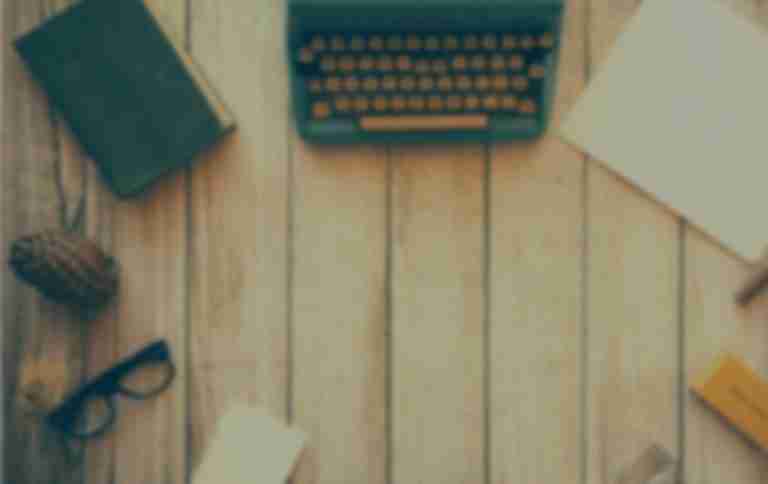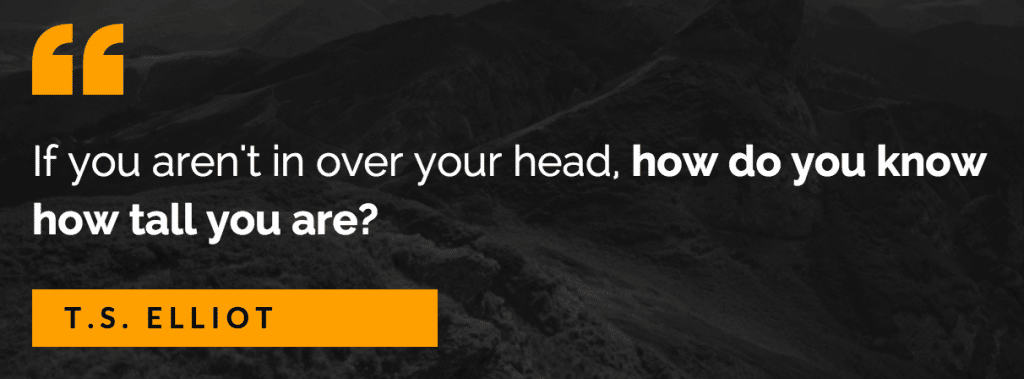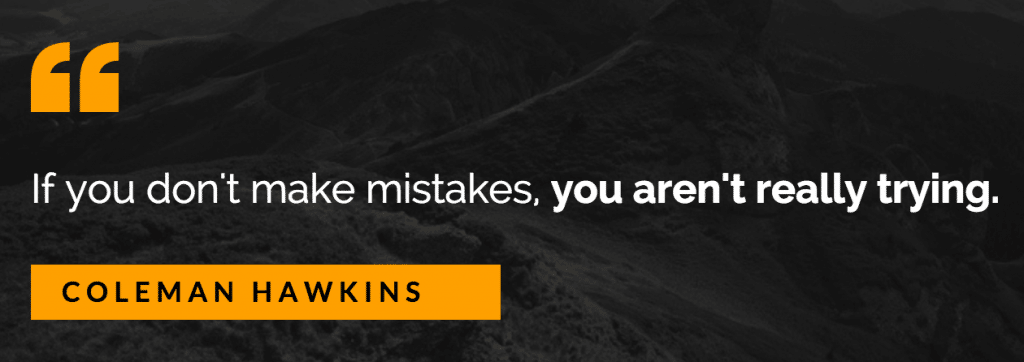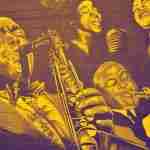Making progress as an improviser is tricky business. I’m not talking about the baby steps along the way like learning a new tune, transcribing a solo, or even practicing a few scales. I’m talking about finding musical breakthroughs. Arriving at creative revelations and actually playing the ideas you’re hearing in your head.
But I’m guessing you already know this…I’m even willing to bet that somewhere, deep down you know you have more musical potential than you give yourself credit for.
You know that you can play a better solo, that you can dust off that old instrument and start practicing again, that you do better than the same old tunes, the same old lines, and the same predictable solos.
But how do you get over this hump? How do you unleash the creative musician buried deep inside of you?
Well if you listen to most people, you’d lock yourself in a practice room for the foreseeable future. But here’s the catch:
Practice alone isn’t good enough…
It’s time to get uncomfortable
As musicians we have a collective mindset that’s ingrained in us from an early age – that practice makes perfect.
It’s true that practice is necessary to be a competent musician, but it’s not the most important thing you can do to improve as a creative musician.
The same routine, the same exercises, and those hours spent playing licks with Aebersolds isn’t going to make you the next Miles Davis. If you want to reach the level of your heroes, you need to get out of the routine and challenge yourself…
The biggest thing you can do to spur improvement and get serious about developing as a musician is to get outside of your comfort zone.
And this is something that took me a while to realize.
You see we tend to practice what we’re good at and we play it safe in musical situations so we sound good, however this habit can also hold you back.
We all practice technique, learn tunes, and study harmony – but to improve the “artistic” and musical aspects of jazz improvisation, you need to get outside of your comfort zone.
Looking at back at my own musical development, it’s not the hours alone in a practice room that sparked improvement – it’s the situations I was put into that made me see the light…
Struggling through jam sessions, painfully trying to play a tune or improvise in a key I didn’t know, being forced to sightread, an audition that didn’t go well, and being put on the hot seat in front of an audience.
When you leave your comfort zone you get a new perspective on what is required to be a musician. You’re forced to face your weaknesses and your fears, and it’s the same for all great musicians, from Charlie Parker to the great players we look up to today.
As painful or challenging these experiences are, they are essential for you to improve as a musician.
It might be inconvenient to put yourself in these situations, but here’s why it’s important…
Discover your weaknesses and embrace them
You’ve probably asked yourself this question at some point in your musical journey:
“What should I practice?”
It’s a question that we get a lot and there are a myriad of approaches you could take, from personal practice plans to general ideas for improvement.
But everything can essentially be boiled down to this: “Practice what you’re not good at.”
It’s that simple (and that complicated). If you want to realize your creative potential as a musician you need to focus on the areas where you’re not cutting it. You’ve got to remove the roadblocks that are holding you back.
The quickest way to discover your musical weaknesses is to get out of your comfort zone…You’ve got to go to jam sessions, take lessons with great players, and put yourself out there – jump head-first into the water and see if you sink or swim.
It’s the difference between practicing for the sake of practicing vs. practicing skills for the real world. When you leave the safety of your comfort zone, you get a crystal clear picture of where you stand. You see the gap that you have to somehow bridge to play the way you want.
For me this was realizing that I needed to work on some serious ear training, focus on improving my technique, master all keys, and learn some jazz language.
What are your musical weaknesses?
Find your source of motivation
If you’re serious about getting to the next level, you need to create a sense of urgency.
Urgency in your practice, in your listening, and in your overall approach to music. You’ve got to find that fine line between your comfort zone and the panic zone.
A place where you’re pushed beyond your ability. Where you’re uncomfortable and grappling with the weak parts of your musicianship. A place where you make mistakes and even fail…
You need to find a source of motivation that’s going to keep you up at night. That will make you stay an extra hour in the practice room and get you out of bed early, determined to make progress.
Because if you’ve failed before, you’re sure as hell not going to let it happen again. This time you’ll be ready to sit in at a jam session, ready to perform in front of an audience, and ready to play your best solo.
Where does your comfort zone end?
Think about it…What is your comfort zone?
What are the areas of your playing that make you uncomfortable or the musical situations that you constantly avoid?
Think of those times where you’re put on the spot and your heart starts pounding. Those situations where you find yourself saying “I’ll sit this one out” or “I don’t really improvise” or “I’m not a great reader.”
These are the moments where you are going to improve the most.
This “comfort zone” is different for every musician. It depends on your experience, your personality, and your dedication to becoming a better musician. But we all have one…
And finding it and forcing yourself to leave it is the key to unlocking your potential.
- Is it practicing and performing without the realbook?
- Learning a tune by ear
- Improvising on a tune you don’t know
- Going to a jam session
- Transcribing your first solo
- Sight-reading
- Playing in the “hard keys” or in odd meters
- Focusing on your time and articulation
- Volunteering to take a solo in front of an audience or your peers
- Performing a style of music you’re not comfortable with
- Figuring out a chord progression by ear
- Listening outside of your comfort zone (classical, early jazz)
- Playing ballads or intros and cadenzas
- Composing your own music
In these situations you’ll discover exactly what you need to practice to become a better musician, and you’ll gain the motivation and determination to actually do it.
Stop going with the flow and don’t become content with your routine. If you’re ready to become a better musician, the path lies just beyond your comfort zone.













